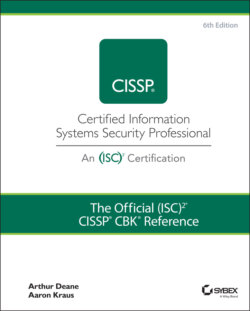Читать книгу The Official (ISC)2 CISSP CBK Reference - Leslie Fife, Aaron Kraus - Страница 75
Import/Export Controls
ОглавлениеMany countries closely regulate the movement of technology through their borders. This might be done to protect local industries from external competition, limit the exportation of sensitive technologies (like encryption), or meet other policy goals of a particular nation. As a CISSP, you should be aware of the implications of any import/export controls in which your organization operates or to which your company's employees may travel.
NOTE The United States, European Union, and other jurisdictions sometimes issue sanctions (government edicts that prohibit doing business with a given person, group, organization, or country) against particular countries or particular entities. These sanctions come and go much more frequently than import/export laws and can pose challenges for security teams that operate in or do business with sanctioned entities. As a CISSP, you should be aware of sanctions that impact your organization and help ensure your organization's IT systems meet relevant legal requirements.
One of the most well-known regulations that establishes import/export controls is the U.S. International Traffic in Arms Regulations (ITAR). ITAR regulates the export of defense articles and defense services to keep those sensitive materials out of the hands of foreign nationals. ITAR applies to both government agencies and contractors or subcontractors who handle regulated materials outlined in the United States Munitions List (USML). Regulated products and technical data include satellites, aircraft, spacecraft, missiles, and much more. Merely sending an email containing ITAR-controlled data (like a blueprint or 3D design file) is considered an export under ITAR. As such, it's important that your organization maintains proper security controls to restrict the flow of ITAR data to legitimate people and locations.
The European Union also places restrictions on dual-use technology. ECPA No. 428/2009 of May 5, 2009, requires member states to participate in the control of exports, transfer, brokering, and transit of dual-use items. In 2017, these regulations were updated to reflect controls over cyber weapons.
A number of countries have adopted laws or regulations that require security reviews to be conducted or, in some cases, denied companies the authority to import products to their countries altogether. In 2016, China passed a broad cybersecurity law that requires information technology vendors to submit their products to the Ministry of State Security for technical analysis. The law allows the ministry to demand source code for inspection as part of the review process. Similar expectations have been placed on software products by Russia and other nations. In 2017, the U.S. government, citing security concerns, singled out Kaspersky Labs, legislating that the company's products would not be allowed on any U.S. government computer system.
